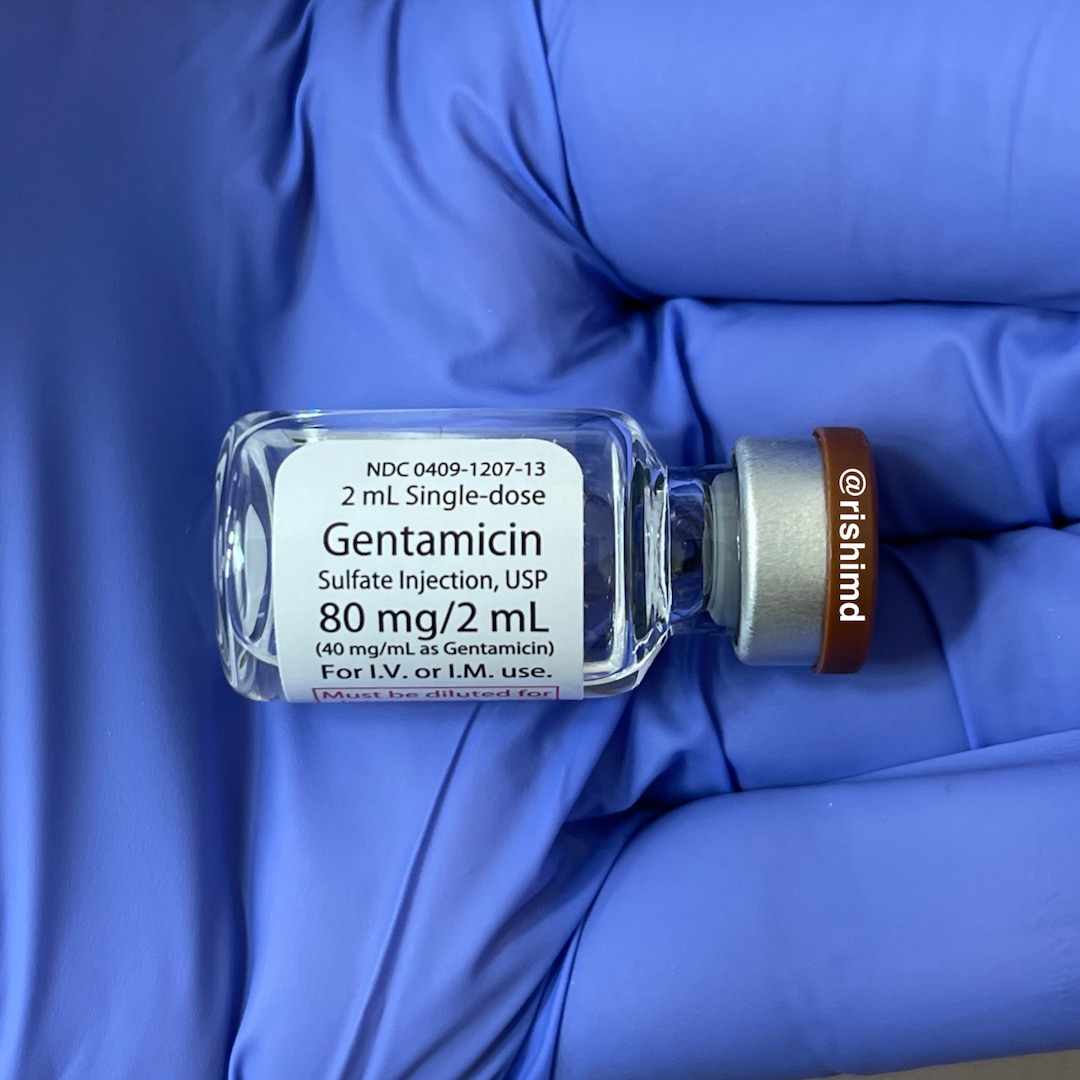Gentamicin is an intravenous, intramuscular, and topical aminoglycoside bactericidal antibiotic that works by interfering with bacterial protein synthesis. By binding the 30S subunit of the bacterial ribosome, proteins are improperly translated leading to bacterial death.
As an intensivist, the most common situation where I think about using gentamicin is as an adjunct (not monotherapy) for overwhelming gram-negative bacteremia with resulting septic shock. Besides bloodstream infections, gentamicin can also be used for bone/soft tissue infections and respiratory/urinary tract infections caused by common gram negative organisms (Pseudomonas, Klebsiella pneumoniae, Serratia, Proteus, etc.) as well as Staphylococcus species.
Kidney and inner ear damage are potential adverse effects of gentamicin, especially at higher doses and longer durations. As such, the dose is adjusted for renal impairment. I try to reserve gentamicin for situations where the benefits outweigh these potential risks.
Drop me a comment with your experience regarding gentamicin!






